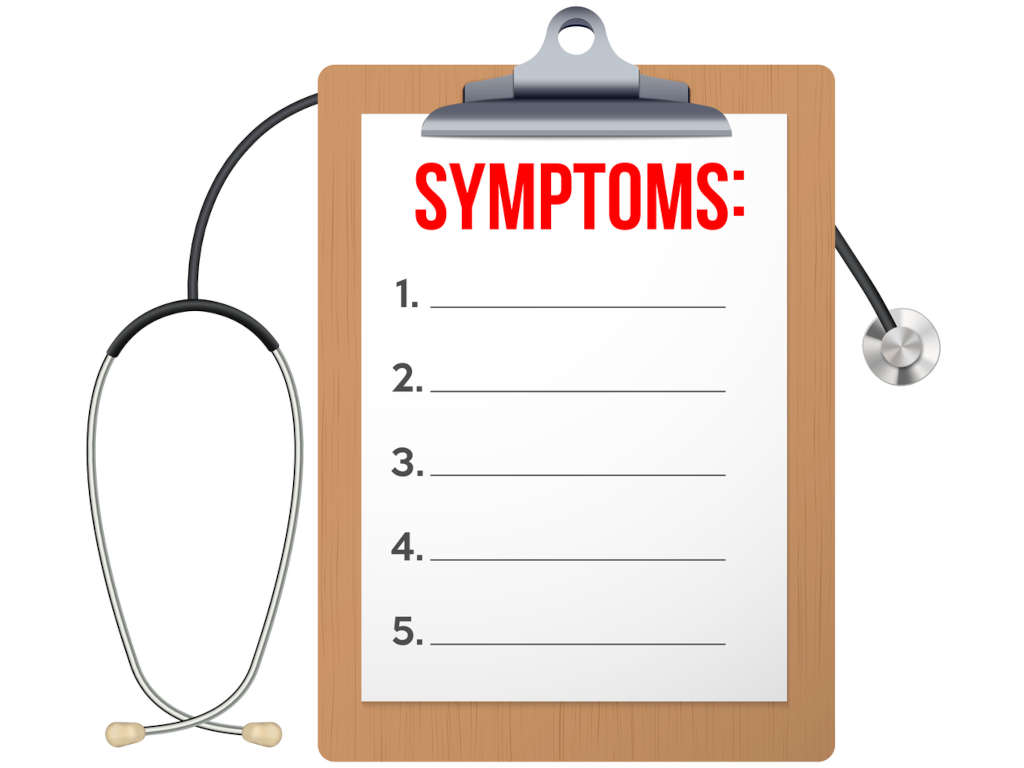Symptoms of Alcohol Withdrawal
Symptoms of alcohol withdrawal can range from mild to severe withdrawal symptoms, and the severity depends on factors such as the amount of alcohol use and your medical history.
When you or someone you know is dependent upon alcohol and alcohol use suddenly stops or you reduce your alcohol intake, there may be severe withdrawal symptoms that occur, warranting medical attention.
Mild symptoms may be sweating or shaking, while more severe symptoms may include delirium tremens or seizures.
Alcohol Withdrawal Diagnosis
According to the diagnostic and statistical manual of mental disorders – Fifth Edition (DSM-5), the diagnostic code for alcohol withdrawal is F10.329, F10.232. A clinician will determine the criteria for alcohol withdrawal based on the DSM-5.
To determine the criteria for alcohol withdrawal a person has is either stopped drinking completely, or severely curtailed their consumption of alcohol. The amount of alcohol consumption will have been heavy and the heavy drinking will have been over a long time period.
At least two or more of these severe symptoms will be present a few hours or days after stopping or reducing their alcohol intake: pulse rate over one hundred beats per minute, sweating, hand tremors, sleeping difficulty, nausea and/or vomiting, random hallucinations, agitation of the body or mind, anxiety, and seizures.
The alcohol withdrawal symptoms listed must cause significant impairment or distress in areas of functioning. It must be noted that the alcohol withdrawal symptoms are not from another mental disorder such as withdrawal from another substance. The alcohol withdrawal symptoms must not be from a general medical condition.
What is Acute Alcohol Withdrawal Syndrome?
Acute alcohol withdrawal syndrome is the set of withdrawal symptoms that result when you become physically dependent upon alcohol or drink heavily and suddenly stop drinking. Withdrawal occurs due to the changes in the brain’s natural functions, which disrupt your neurotransmitters. These neurotransmitters send signals to your central nervous system.
The primary neurotransmitter, gamma-aminobutyric acid or known as “Gaba” is tied to relaxation and euphoria. Gaba increases endorphins which create a “happy” feeling in your body. Once you stop drinking or your alcohol consumption decreases, you create less of these “happy” feelings, causing your body to react, usually with mild symptoms or even worse, more serious symptoms. If you experience dangerous symptoms, you may need professional medical care.
Common Alcohol Withdrawal
Common withdrawal symptoms happen when you drastically reduce your alcohol use or you suddenly stop drinking. When you stop drinking after excessive drinking or long-term drinking, it makes changes in the brain resulting in alcohol withdrawal.
Common Alcohol Withdrawal Symptoms
The signs and symptoms of alcohol withdrawal may appear anywhere from six hours to a few days after your last drink. These usually include at least two of the following:

- Tremors
- Nightmares
- Anxiety
- Sleep disturbances
- Nausea
- High blood pressure
- Irritability
- Vomiting
- Alcohol poisoning
- Insomnia
- Headache
- An increased heart rate
- Sweating
- Auditory hallucinations
- Confusion
Alcohol Withdrawal Effects on Your Body
Excessive alcohol use causes a depressive effect on your body, specifically your central nervous system. It slows down brain function and changes the way your nerves send messages back and forth.
After prolonged alcohol use, your body begins to adjust and need alcohol in order to feel “normal” Your body starts to overcompensate by staying in a more awakened state, in order to keep your nerves communicating with one another. Once you stop drinking, a person typically will begin experiencing alcohol withdrawal symptoms.
Timeline of Alcohol Withdrawal Symptoms
Every person will have a unique alcohol withdrawal timeline, but some of the most common symptoms are based on when you take your last drink:

6 to 12 hours after alcohol use
- Agitation
- Shaking
- Anxiety
- Nausea and vomiting
- Headaches
12 to 24 hours after alcohol use
- Seizures
- Disorientation
- Hand tremors
48 hours after alcohol use
More severe withdrawal symptoms include:
- High fever and excessive sweating
- Delirium tremens
- High blood pressure
- Withdrawal seizures
- Tactile, auditory, and visual hallucinations
- Insomnia
Your alcohol withdrawal timeline may or may not look like this. If you or someone you know is experiencing withdrawal symptoms like any of the ones listed above, seek professional help where an addiction specialist can explain alcohol use disorders and provide medical advice.
Undergoing Alcohol Withdrawal
If you or a loved one is going through alcohol withdrawal, it will be difficult. At the first onset, we suggest seeking medical guidance. Medical detoxification will help ease any discomforts. You can begin to experience alcohol withdrawal symptoms the moment after your last drink. What alcohol withdrawal syndrome looks like is similar across the board, however, will effect each person differently.
Alcohol withdrawal symptoms can be extremely dangerous, and the best way to treat alcohol withdrawal is to seek a medical professional at a detox hospital unit or addiction treatment center.
Turning Point of Tampa can Help Guide You
Turning Point of Tampa can help guide you and help you stop drinking, in a safe, supportive environment. We partner with detox facilities and can also work with a facility near your home. When alcohol withdrawal is eminent, we help you find the right place for detox.
Alcohol withdrawal treatment and alcohol detox may involve many different medical professionals, including a medical doctor, along with nursing and clinical support staff, social workers, psychologists, and mental health counselors.
Patients who need medically supervised detoxification may need to be referred to an addiction specialist or addiction treatment program that can provide medically monitored withdrawal treatment.
Medication Assisted Treatment
Prescribed medications are used to treat alcohol withdrawal or alcohol detox. According to the Substance Abuse and Mental Health Services Administration (SAMHSA), medication-assisted treatment (MAT) is the use of medications, in combination with counseling and behavioral therapies, to provide a “whole-patient” approach to the treatment of substance use disorders. (SAMHSA 2021). **
Medication assisted treatment (MAT) is different than ongoing medication assisted treatment (OMAT). Medication assisted treatment will help the alcohol withdrawal by offering medication during the detoxification process. Ongoing medication assisted treatment (OMAT) is for those undergoing alcohol withdrawal and who want to be on ongoing medication. Turning Point of Tampa accepts alcoholics that have completed the detoxification and do not require ongoing medication for alcoholism.
Alcoholism and Alcohol Addiction
Alcohol use disorder (AUD) is a chronic disease that affects many people on a daily basis. There is not one defining factor that will determine whether you will develop an alcohol addiction. Alcohol abuse and alcoholism have been studied over and over again, and it was determined that there are many things like genetic, psychological, and behavioral factors that can all contribute to developing the disease.
Alcohol abuse and substance abuse happen when you cannot control your drinking or drug related behaviors. Alcohol consumption in moderation is usually not something to worry about. If you drink heavily you may be at an increased risk for an alcohol use disorder.
Negative Health Effects of Alcohol Use

Chronic drinking or prolonged alcohol abuse can wreak havoc on your body. According to the National Institute on Alcohol Abuse, there is a strong scientific consensus of an association between drinking alcohol and different types of cancer.
Furthermore, in the report from the National Institute on Alcohol Abuse on Carcinogens, the National Toxicology Program of the US Department of Health and Human Services lists consumption of alcoholic beverages as a known human carcinogen.
The effects of alcohol abuse begin fairly quickly and can cause many alcohol health related problems. While an occasional glass of wine may not be a cause for concern, frequent alcohol or substance abuse may be a different story.
Health Effects
Alcohol use can cause prolonged symptoms in the body. Some of these symptoms may require medical care, while others may not be treatable.
Inflammatory Damage
Long term alcohol misuse effects the way that your liver processes alcohol in the body. Frequent drinking increases your risk for chronic liver inflammation and liver disease. This process is known as cirrhosis and may be life-threatening.
Digestive System
The use of alcohol can prevent your intestines from digesting food and absorbing nutrients and vitamins, due to the damage to tissues in your digestive tract. As a result, nutritional deficiencies or malnutrition may occur.
Heavy drinking from can also lead to:
- Bloating
- Gassiness
- Painful stools or diarrhea
- A feeling of fullness in your abdomen
Dependency
If you drink often, you may develop a dependence or tolerance to alcohol. Alcohol withdrawal symptoms make it even hard to quit. Often, it is helpful to seek out professional help for an alcohol addiction.
Depending on the severity of alcoholism withdrawal symptoms, detoxification can be managed at a treatment center to ensure the safest outcomes. Alcohol withdrawal seizures or delirium tremens can be dangerous or even fatal, warranting a medical emergency.
Alcoholism and Mental Health
It is not uncommon for clients seeking treatment for drug or alcohol addiction to also be dealing with issues such as depression, anxiety, PTSD, grief, or other “co-occurring mental disorders.”
From the National Institute on Alcohol Abuse and Alcoholism, alcohol interferes with the brain’s communication pathways and can affect the way the brain looks and works. Alcohol makes it harder for the brain areas controlling balance, memory, speech, and judgment to do their jobs, resulting in a higher likelihood of injuries and other negative outcomes.
Our psychiatrists and clinical team are experienced in dealing with the complexity of dual-diagnosis issues and can provide professional clinical advice on these issues. Mental health issues are addressed at Turning Point of Tampa in conjunction with addiction treatment.
Addiction Treatment at Turning Point of Tampa
Turning Point of Tampa is a drug and alcohol addiction treatment center specializing in alcoholism treatment, drug abuse and addiction, and eating disorder treatment in a supportive environment. Every client we see at our addiction treatment facility needs to be cleared medically and assessed by a member of our clinical team before being admitted for treatment.
If you or your loved one needs alcohol detox or is going through alcohol withdrawal syndrome and need help, we can find the right place for you. We partner with a number of medical detoxification facilities in the greater Tampa area.
In some instances, a client may go through alcohol withdrawal treatment at a facility near their place of residence prior to traveling to Turning Point of Tampa. If you experience withdrawal symptoms, please reach out to us and we will help you get medically reviewed. Professional medical advice is often the answer someone needs to understand why they are not feeling well.
Aftercare planning and relapse prevention are a strong focus of each person’s treatment, from admission to discharge. We offer weekly aftercare support groups to all clients, free of charge, for as long as they wish to attend. Alumni are encouraged to stay connected to Turning Point of Tampa.
References
Substance Abuse and Mental Health Services Administration. (2021). Medically Assisted Treatment (MAT). 4 January, 2021. https://www.samhsa.gov/medication-assisted-treatment


